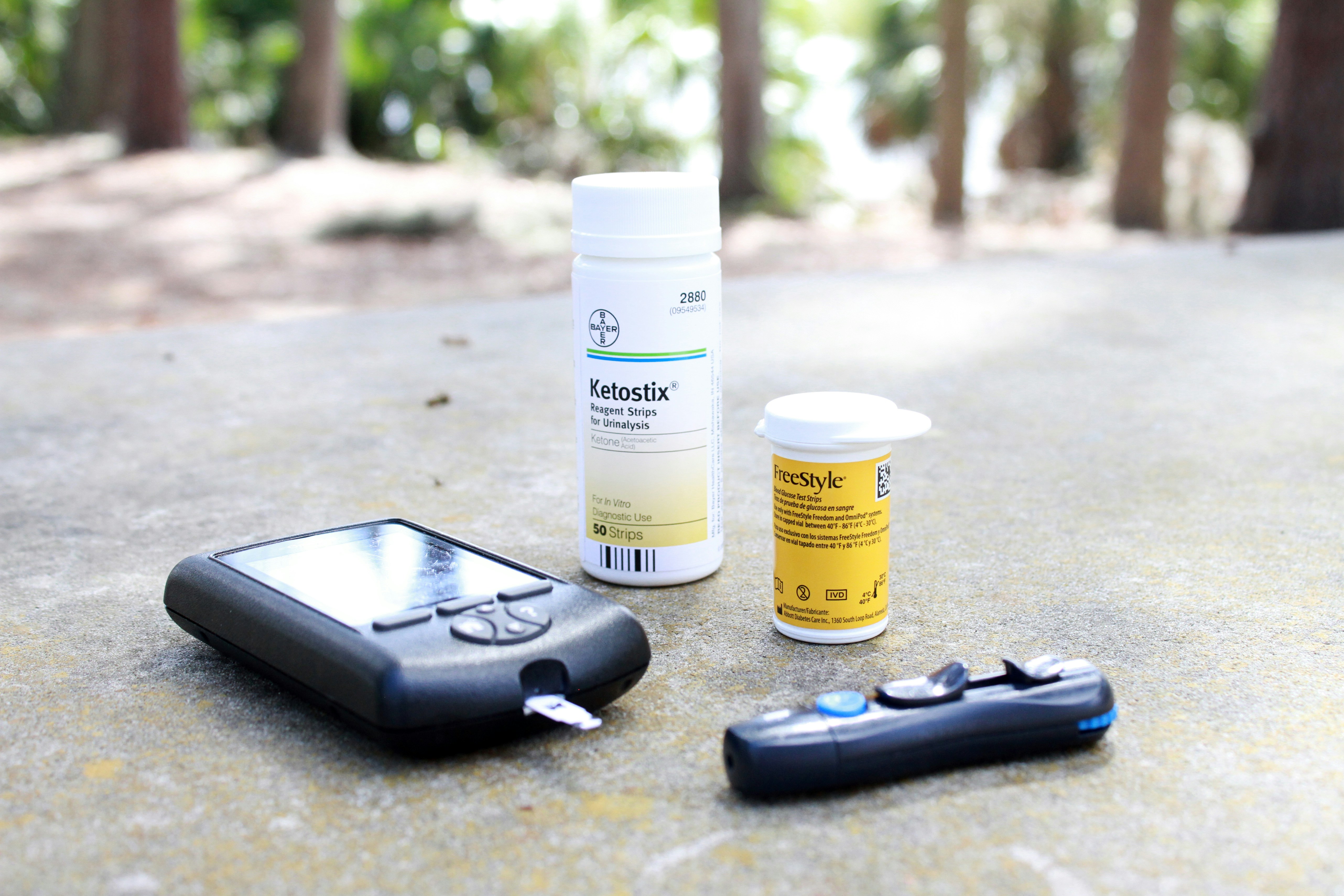Does Green Tea Play A Role In Improving Insulin Sensitivity And Managing Blood Sugar Levels?
In this article, we explore the potential impact of green tea on insulin sensitivity and blood sugar management. Green tea, known for its abundance of antioxidants and potential health benefits, has gained attention for its potential role in regulating insulin and blood sugar levels. Through a comprehensive analysis of available research and studies, we aim to shed light on the potential benefits and limitations of incorporating green tea into a balanced diet for individuals seeking to improve their insulin sensitivity and manage their blood sugar levels effectively.
What is insulin sensitivity?
Insulin sensitivity refers to the body’s ability to respond effectively to insulin, a hormone produced by the pancreas. Insulin plays a crucial role in regulating blood sugar levels by enabling the cells to absorb glucose from the bloodstream and convert it into energy. When the body becomes insulin resistant, it means that the cells are less responsive to the effects of insulin, leading to elevated blood sugar levels and potentially contributing to the development of prediabetes or type 2 diabetes.
Importance of insulin sensitivity
Insulin sensitivity is essential for maintaining overall health and preventing the onset of diabetes. When the body is sensitive to insulin, it effectively clears glucose from the bloodstream, thereby preventing high blood sugar levels. This is crucial for ensuring that the cells receive the energy they need to function optimally. In contrast, insulin resistance can lead to elevated blood sugar levels, which can have detrimental effects on various organs and systems in the body if left unchecked.

Link between insulin sensitivity and blood sugar levels
How insulin sensitivity affects blood sugar levels
Insulin sensitivity plays a pivotal role in regulating blood sugar levels. When the body is sensitive to insulin, it efficiently transports glucose from the bloodstream into the cells, allowing for optimal utilization of glucose as an energy source. This process helps maintain blood sugar levels within the normal range. However, when insulin sensitivity decreases, the cells become less responsive to insulin, resulting in reduced glucose uptake and increased blood sugar levels.
Role of insulin in regulating blood sugar levels
Insulin is responsible for facilitating the uptake of glucose into cells, particularly muscle and fat cells. It acts as a key that unlocks the cells’ ability to absorb glucose from the bloodstream. Insulin also helps suppress the liver’s production of glucose, preventing excessive glucose release into the bloodstream. By regulating these processes, insulin ensures that blood sugar levels are maintained within a narrow range, keeping them neither too high nor too low.
Understanding green tea
Introduction to green tea
Green tea is a popular beverage worldwide, known for its numerous health benefits. It is derived from the Camellia sinensis plant and is produced by steaming or pan-frying the plant’s leaves. Unlike black tea, green tea undergoes minimal oxidation during processing, preserving its natural compounds and beneficial properties. Green tea has a mild, refreshing taste and contains various bioactive compounds that contribute to its potential health benefits.
Nutritional composition of green tea
Green tea is low in calories and is primarily composed of water. However, it also contains certain bioactive compounds, including polyphenols, catechins, and caffeine, that contribute to its health-promoting properties. These compounds, particularly the polyphenols known as epigallocatechin gallate (EGCG), are believed to be responsible for many of green tea’s potential health benefits.
Benefits of green tea
Antioxidant properties
Green tea is rich in antioxidants, particularly catechins and polyphenols. These antioxidants help protect the body against oxidative stress caused by free radicals, unstable molecules that can damage cells and contribute to chronic diseases. By neutralizing free radicals, green tea’s antioxidant properties can help reduce the risk of various health conditions, including heart disease and certain types of cancer.
Weight management
Several studies suggest that green tea may aid in weight management. Research has indicated that green tea can increase metabolic rate and fat oxidation, which may contribute to weight loss. Additionally, the catechins in green tea have been shown to enhance thermogenesis, the body’s ability to burn calories and produce heat. Combined with a balanced diet and regular exercise, incorporating green tea into a weight management plan may have beneficial effects.
Heart health
Drinking green tea has been associated with a reduced risk of cardiovascular diseases. The antioxidants in green tea, particularly the catechins, may help improve heart health by reducing inflammation, lowering blood pressure, and improving blood lipid profiles. Regular consumption of green tea has been linked to a lower risk of developing conditions such as hypertension, stroke, and coronary artery disease.
Brain function
Green tea contains caffeine, which is a natural stimulant that can enhance brain function and improve mental alertness. Additionally, green tea’s polyphenols, particularly EGCG, have been found to have neuroprotective properties and may help reduce the risk of cognitive decline and neurodegenerative diseases, such as Alzheimer’s and Parkinson’s. While more research is needed in this area, preliminary studies suggest that regular consumption of green tea may have positive effects on brain health.
Studies on the effects of green tea on insulin sensitivity
Overview of relevant research studies
Several studies have investigated the potential effects of green tea on insulin sensitivity. These studies have primarily focused on individuals at risk of developing type 2 diabetes or those already diagnosed with the condition. The research methods have involved both animal models and human trials to evaluate the impact of green tea consumption on insulin sensitivity and related metabolic parameters.
Positive effects on insulin sensitivity
Studies have shown promising results regarding the positive effects of green tea on improving insulin sensitivity. For example, a randomized controlled trial conducted on individuals with type 2 diabetes found that daily consumption of green tea extract for twelve weeks significantly improved insulin sensitivity compared to a placebo group. Similar findings have been observed in other studies, suggesting that green tea may play a role in enhancing insulin sensitivity and reducing the risk of developing type 2 diabetes.
Potential mechanisms
The exact mechanisms by which green tea improves insulin sensitivity are still being investigated. One possible mechanism is the impact of green tea’s polyphenols, particularly EGCG, on glucose homeostasis and insulin signaling pathways. Research suggests that these polyphenols can activate AMP-activated protein kinase (AMPK), an enzyme that plays a crucial role in glucose metabolism. Additionally, green tea’s effects on gut microbiota composition and insulin regulation may also contribute to its potential benefits for insulin sensitivity.
Green tea and blood sugar management
Role of green tea in regulating blood sugar levels
Green tea may have a positive impact on blood sugar management, particularly in individuals with prediabetes or type 2 diabetes. By improving insulin sensitivity and reducing insulin resistance, green tea can contribute to better blood sugar control. Additionally, green tea’s antioxidant properties may help reduce inflammation, which can contribute to insulin resistance and elevated blood sugar levels.
Effects on postprandial glucose levels
Studies have shown that consuming green tea with a meal can help regulate postprandial glucose levels, which are the blood sugar levels after eating. Drinking green tea before or during a meal has been found to lower the postprandial glycemic response, resulting in a more controlled and gradual increase in blood sugar levels. This can be especially beneficial for individuals with diabetes, as it helps prevent spikes in blood sugar levels that can lead to complications.
Impact on insulin secretion and action
Green tea may also influence insulin secretion and action in the body. Research suggests that the polyphenols in green tea can stimulate insulin secretion from pancreatic beta cells, which are responsible for producing insulin. Additionally, green tea’s effects on insulin signaling pathways and glucose metabolism may enhance the action of insulin in the body, leading to improved blood sugar regulation.
Mechanisms of green tea’s effects on insulin sensitivity
Role of polyphenols
Green tea’s beneficial effects on insulin sensitivity are attributed to its polyphenol content, particularly EGCG. Polyphenols are known to have antioxidant, anti-inflammatory, and metabolic effects, all of which can contribute to improved insulin sensitivity. These compounds can interact with various molecular targets involved in insulin signaling and glucose metabolism, influencing key genes and proteins involved in glucose homeostasis.
Activation of AMPK pathway
The activation of AMPK by green tea’s polyphenols is another mechanism through which green tea improves insulin sensitivity. AMPK is an enzyme that helps regulate energy metabolism, including glucose uptake and utilization. Activating AMPK promotes glucose uptake in muscle cells and enhances insulin sensitivity, leading to improved blood sugar control.
Influence on gut microbiota
Emerging research suggests that green tea may also impact the composition and activity of the gut microbiota, the community of microorganisms residing in the digestive system. Certain beneficial bacteria in the gut have been associated with improved insulin sensitivity, while an imbalance in gut microbiota composition may contribute to insulin resistance. Green tea’s polyphenols have been shown to have prebiotic-like effects, promoting the growth of beneficial bacteria and potentially influencing insulin sensitivity through gut microbiota modulation.
Optimal consumption of green tea for insulin sensitivity
Recommended daily intake
While there is no specific recommended daily intake of green tea for improving insulin sensitivity, including 3-5 cups per day in your diet is generally considered beneficial. However, individual tolerance to caffeine should be taken into account, as green tea contains varying amounts of caffeine depending on the brewing method and type of tea. Additionally, it’s important to note that green tea should not replace medications or medical advice for managing diabetes or other related conditions.
Potential risks of excessive consumption
While green tea is generally safe for most individuals when consumed in moderation, excessive consumption may lead to certain risks. High levels of caffeine from green tea can cause side effects such as jitteriness, headaches, and sleep disturbances. Green tea supplements or extracts, which are more concentrated forms of green tea, may carry additional risks and should be used with caution. As with any dietary change or supplementation, it is advisable to consult with a healthcare professional before making significant changes to your routine.
Green tea as part of a holistic approach to blood sugar management
Importance of balanced diet and exercise
Green tea should be viewed as a complementary component of a comprehensive approach to blood sugar management. While it may offer potential benefits for insulin sensitivity, it is essential to adopt a balanced diet that supports overall health and blood sugar regulation. This includes consuming a variety of whole foods, limiting processed sugars and refined carbohydrates, and incorporating regular exercise into your routine. These lifestyle factors, together with green tea consumption, can work synergistically to support optimal blood sugar control.
Combining green tea with other natural interventions
In addition to green tea, several other natural interventions have shown potential in improving insulin sensitivity and blood sugar management. These include dietary modifications such as reducing carbohydrate intake, increasing fiber consumption, and incorporating foods rich in omega-3 fatty acids. Certain herbs and spices, such as cinnamon and fenugreek, have also been studied for their potential benefits in improving insulin sensitivity. Combining these natural interventions with green tea may enhance their overall impact on blood sugar regulation.
Conclusion
In conclusion, green tea shows promise in improving insulin sensitivity and contributing to effective blood sugar management. Its antioxidant properties, along with its potential effects on weight management, heart health, and brain function, make it a valuable addition to a healthy lifestyle. While further research is needed to fully understand the mechanisms and optimal consumption levels, incorporating green tea into a balanced diet and exercise routine can potentially enhance insulin sensitivity and support overall metabolic health.


Comments are closed, but trackbacks and pingbacks are open.